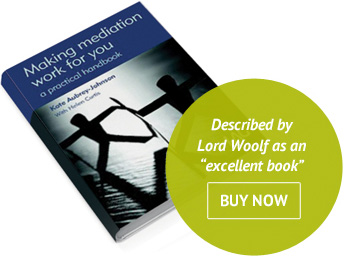BLOG
Confidentiality/Mediation and the Courts……something lingering
April 28, 2021
Introduction
David Watkinson considers recent developments concerning two issues on which he has previously blogged. First, the Court of Appeal’s decision in Berkeley Square holdings Ltd v Lancer Property Management Ltd and second, the ongoing debate about the value of mediation being made mandatory.
First up is the case of Berkeley Square holdings Ltd v Lancer Property Management Ltd [2020] EWHC 1015 (Ch).
I commented on the High Court Judgment (Roth J) on 28th June 2020 (Confidentiality: Seamless or a Thing of Shreds and Patches). In that case, the court held that passages in a mediation position statement could be relied upon and pleaded in a defence in subsequent proceedings. Roth J applied the exceptions to the WP (without prejudice) rule and, in particular, that which applied when a party relies upon what was said in confidential/without prejudice negotiations in order to establish that fraud or misrepresentation had led to the agreement that had been concluded. It appears that it was common ground that those exceptions did apply to mediations (para 36 before Roth J, para 30 in Court of Appeal).
The defendant was seeking to rely on the position statement in order to maintain that there had been no fraud in its dealings with the claimant. The learned judge held that the exception applied either directly or “by reason of a small but principled extension” (para 30). The claimant appealed.
In brief, the Court of Appeal (Richards, Henderson, Popplewell LJJ) [2021] EWCA Civ 551, upheld Roth J unanimously, sweeping aside the claimant’s/appellant’s submissions that no such extension should be permitted. As I commented before, “It would plainly be unfair to allow disclosure of evidence of fraud but to refuse to allow disclosure which rebuts evidence of it.” As Richards LJ said of the claimant’s argument to the contrary, “I am unable to see any principled ground for this distinction” (para 50).
And there, for now, the matter rests.
The second issue partly relates to the question whether Courts should have the power to require parties in civil cases to mediate their dispute. This issue is as continually recurring as a second referendum on Scottish independence (I express no view on the merits of that). Again I have blogged before on this topic – see Ordering ADR-the Early Neutral Evaluation Case (September 30th 2019) and Greece Introduces Compulsory Mediation (March 14 2018) – as have others of my colleagues.
New life has been breathed into this by a speech given by Sir Geoffrey Vos (recently appointed Master of the Rolls (MoR) and congratulations to him) on 26/3/21 at Hull University’s re-launch of its Mediation Centre.
In it he states “Mediation and ADR is not generally compulsory in England and Wales. The CJC [Civil Justice Council], which I chair, is looking at whether it is desirable, and if so, what forms of ADR, and if so, in what circumstances. The sub-group report should be available shortly” (para 30).
There is something curious here. On 10/12/19, Peter Causton, a member of the CJC’s Judicial Liaison Committee on ADR (presumably the sub-group) wrote in Promediate that the Committee would advise, amongst others, the MR, on, amongst other matters, ‘the findings and the recommendations of the Interim and Final Reports of the ADR Working Group of the CJC.’.
I blogged on these reports in ADR and Civil Justice (February 20th 2019). The Group was not in favour of the courts ordering ADR/Mediation as a precondition for any further steps in civil litigation. Instead it favoured a publicity and persuasive approach on the part of the Courts, the government and the “ADR community”. So it appears the CJC has already spoken on this issue.
No doubt further clarification will be forthcoming.
In the meantime, however, what the speech demonstrates is the MoR’s own eagerness to see “ADR integrated into every stage of what we call the dispute resolution process” (para 8). Indeed, he would remove the word “alternative” altogether (paras 37-8). He considers 14 separate practice areas in which ADR could play a role. They include Money claims (up to £100,000), Personal Injury Claims up to £25,000, Possession Claims and Business and Property cases. Family Money and Family Children and Employment cases and Ombudsperson proceedings are also referred to as part of the ADR picture.
This is plainly a formidable programme. What is clear is the MoR’s commitment to expanding the role of mediation in the court and tribunal system. The “ADR community” should ready itself for the challenge

